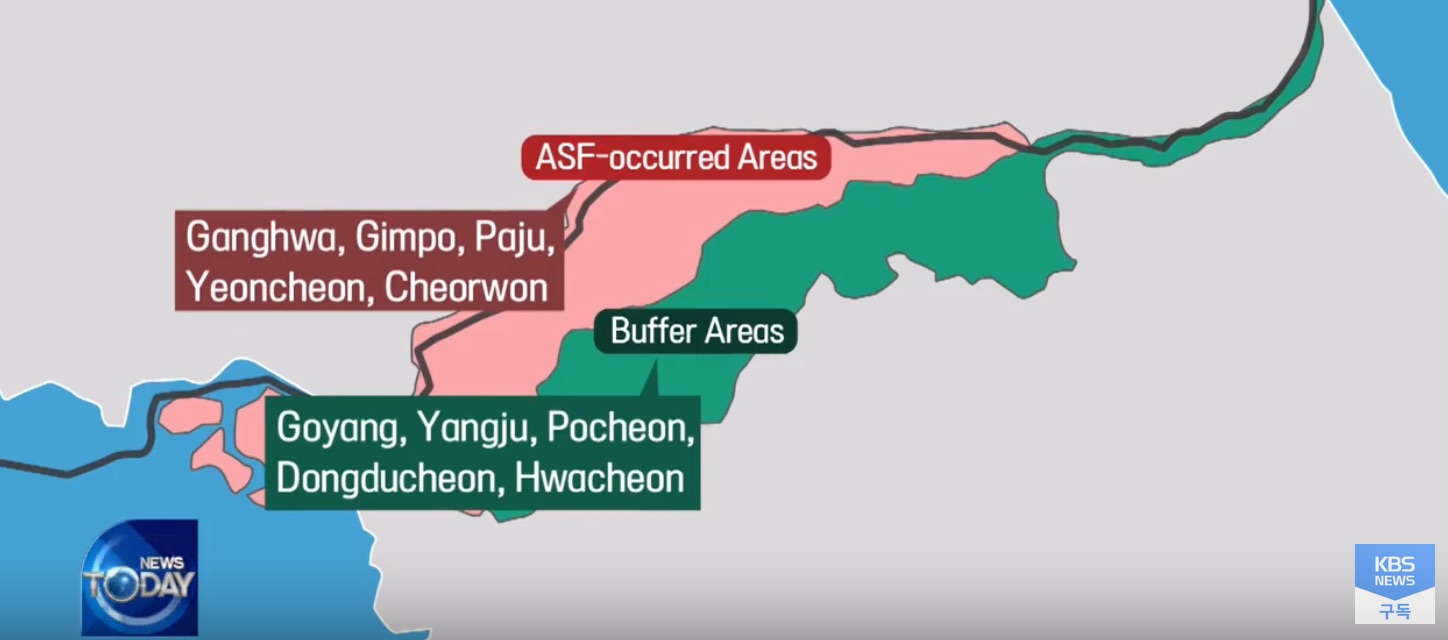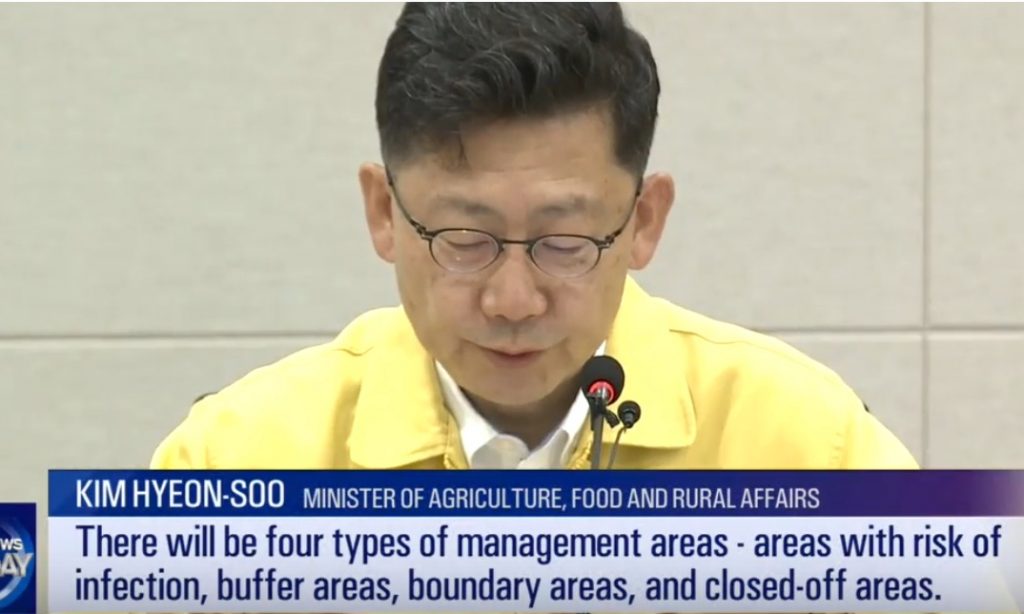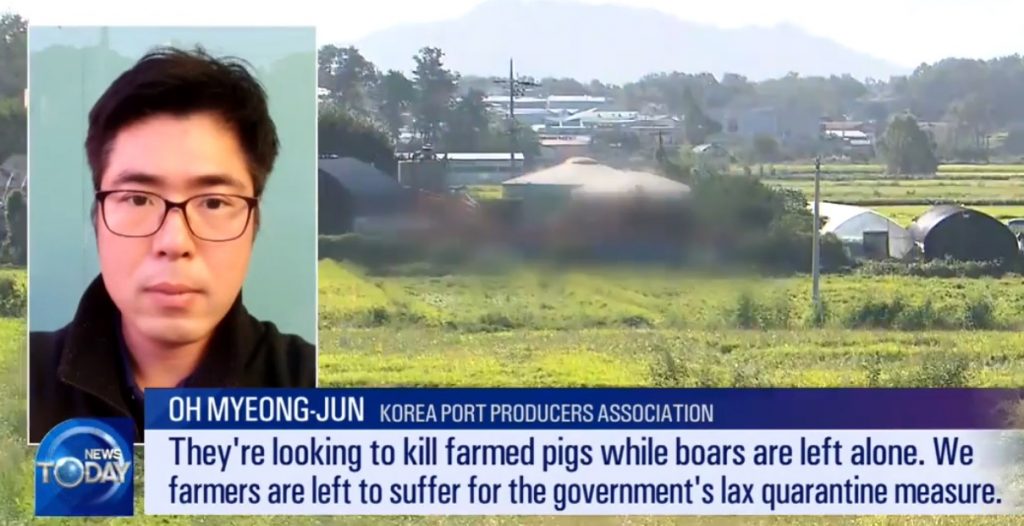
The African swine fever virus was found in the wild boar carcasses discovered in the border towns of Yeonchon and other towns near the North Korean border.
The government designated boar controls near the border and allowed boar hunting in some areas.
But Korean pig farmers criticized the government’s belated measures. The government has decided to control the number of boars in the border areas. The measures comes around a month after the first case of African swine fever was reported in September 2019.

The Minister of Agriculture Kim Hyeon-Soo announced severe though belated measures to control the outbreak at the border towns new North Korea. The measures include the separation of areas in different categories of ASF infection:
- Risk of Infection
- Buffer areas
- Boundary areas
- Closed-off areas
Fences will be put up along the rivers or roads in the infection risk areas where boar carcasses were found. Traps and nets will be placed within the 30 square kilometer area of the carcass discovery site and hunting guns will be allowed within a 300 square kilometre area.
Five cities and counties reported ASF cases and five adjacent cities and counties were designated as the outbreak and buffer zones respectively.
More nets and traps will be placed in these areas to prevent boars from crossing over two other regions
Seven cities and counties adjoining these areas are designated as boundary zones where an all-out hunting week has been declared. Starting today hunters can kill boars without reporting to authorities.
Until now, the Ministry of Environment was reluctant to allow such activities designed to control the wild boar population. That was because the ministry believed wild boars were unlikely carriers of the African swine fever virus, a fact that is widely proved in Africa and Europe.
The South Korean government’s belated countermeasures have infuriated farmers, who were forced to sell and cull all of their pigs. At least some 150,000 pigs in 148 farms or piggeries have already been culled.

Oh-Myeong-Jun from the Korea Pork Producers Association complained about the lax policy of the government about the wild boars, and the strict measures on piggeries, ending up in massive swine culling.